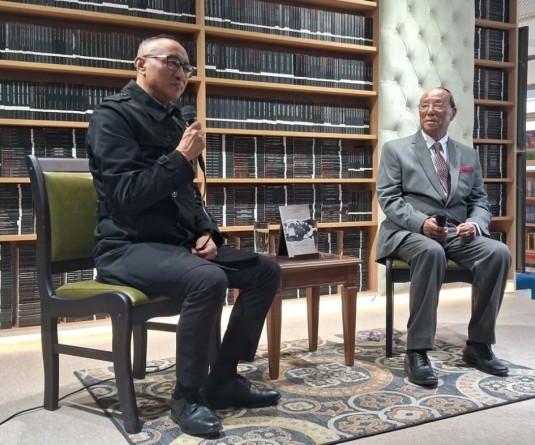
Time to stand up for the rights our forefathers fought for: Achumbemo Kikon
LONGWA, APRIL 1 (MExN): The Naga People’s Front (NPF) on April 1 held a public rally at Longwa village to protest the proposed border fencing between India and Myanmar, with party leaders warning of serious consequences if the fencing moves ahead against the wishes of the people.
The rally was attended by the NPF Central Team, led by President Apong Pongener and Secretary General and MLA Achumbemo Kikon, along with central office bearers of the youth and women’s wings, village leaders, students, and residents of Longwa.
Kikon reiterated the village’s historical claim to the land and rejected any attempt to divide it through fencing. “We are living on our own land, and no one has the right to divide our home,” he said. “We Nagas know our rights, and it is India that is attempting to curb them. We will protect our land at all costs. This is our land, and we will never allow any force to divide it again.”
Longwa village, located along the Indo-Myanmar border in Nagaland’s Mon district, is known for its unique geopolitical placement—part of the Angh’s house lies in India, while the other extends into Myanmar. Kikon questioned the rationale behind dividing the house of the Angh, the village chieftain, and described the fencing plan as “absurd.”
He echoed concerns raised by Longwa’s village leaders and student representatives, stating that “the youth will stand for the rights of the people of Longwa and will leave no stone unturned in defending what their forefathers and elders have entrusted to them.” He warned that “anyone who encroaches upon their land against their wishes would do so at their own peril.”
Kikon also voiced strong opposition to the scrapping of the Free Movement Regime (FMR), which previously allowed cross-border movement for tribes living in border regions. “The NPF is a party that stands with its people and will support them in their time of need.
Unlike other parties, which operate from air-conditioned rooms, the NPF is a party that speaks for and acts in the interest of its people,” he said.
Criticizing the Indian government’s Act East Policy and Neighbourhood First Policy, Kikon said the fencing project contradicts the stated objectives of regional connectivity and cooperation. “Nagas are not nomads,” he said. “We live in settled villages and return to our homes.
We cherish our traditions, and the Angh system of governance continues to guide us. We fought the British not to live under their control, and we will not live under anyone’s control.”
Referring to the historical legacy of the Naga struggle, Kikon cited India’s first Prime Minister, Pandit Jawaharlal Nehru, who had described the tribal areas as “the long frontier of India, which are neither part of India nor Burma nor any foreign state.” He also recalled a public meeting in Kohima during which Naga leaders were denied the chance to speak or submit a memorandum to Nehru and Burmese Prime Minister U Nu—a move Kikon described as an act of humiliation that led to the division of Naga territories.
“The real fight starts here (Border Villages),” he declared. “We must speak with one voice, and together, we will fight for our rights.”
Kikon meanwhile aligned the NPF’s stance with recent statements made by Nagaland Chief Minister Neiphiu Rio in the state assembly, in which Rio opposed both the border fencing and the revocation of the FMR. “It is our time to stand up for the rights our forefathers fought for, for the good of future generations,” Kikon said. “If we do not stand for our rights today, it will be us who suffer in the end,” he stated.





